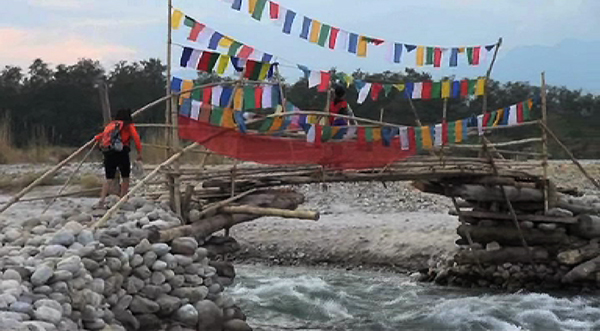 For people living across Mao River, public transport service is imperative in summer while travelling to Gelephu town. But, in winter, it is at their disposal whether to make use of it or not. And many choose not to.
For people living across Mao River, public transport service is imperative in summer while travelling to Gelephu town. But, in winter, it is at their disposal whether to make use of it or not. And many choose not to.
As winter sets in, people resort to their usual practice of getting across Mao River using temporary bridges. They prefer walking to Gelegphu town taking the old route as it saves time and cost.
A villager, Penjorla from Chhuzanggang says the bus to Gelegphu leaves at 7 AM and many people are not able to make it on time.
“For a round trip, we spent Nu 140 for public transport. But in winter, we can save this cost because it’s about 45 minutes walk till Gelegphu town”, another villager, Chencho added.
On the other hand, for the bus service providers, since winter is a lean season, some of them temporarily suspend their service. They said people only use the service if they have heavy loads to carry on their way home from the town.
Umling Transport Service Driver, Sonam Tshewang said “in summer people use the service as they cannot cross the swollen Mao River. In winter, it is a dry season. Still then, we are operational every day”.
Meanwhile, Chhuzanggang gewog administration says it is becoming increasingly challenging to construct temporary bridges over Mao River.
According to the gewog’s mangmi, Lekey Wangchuk, forestry officials doesn’t issue timber permits for construction of temporary bridges over Mao River. This they said is because the gewog has public transport service. So, for this time mangmi said people contributed bamboos for construction of the temporary bridges. “We also used stones and timbers washed down by the river” he added.
There are four gewogs across Mao River with a population of at least eleven thousand.










